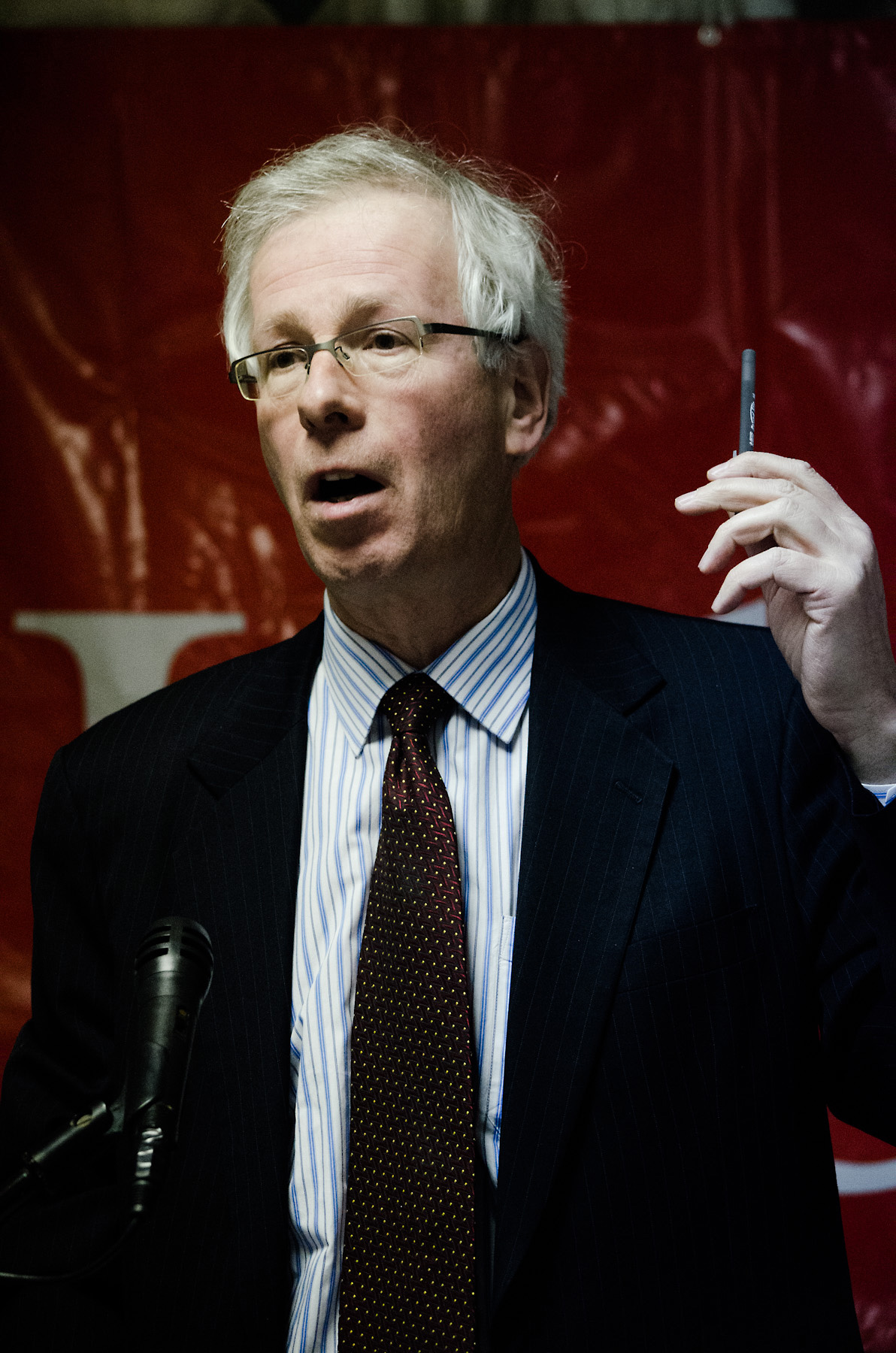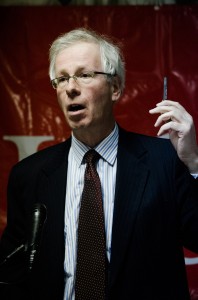Dion takes on electoral reform


On Sunday afternoon the Kitchener-Waterloo Federal Liberal Association hosted a lively debate on electoral reform with special guest Stéphane Dion. Dion, former leader of the Liberal Party of Canada is now the current Member of Parliament for the riding of Saint-Laurent-Cartierville in Montreal.
Dion presented his model for electoral reform in a two hour debate with John Deverell, the policy director for Scarborough-East Pickering Federal Liberal Association (FLA) and Doug Jackson, president for Cambridge FLA.
The focus of the debate centered on Dion’s distress with the current First Past the Post (FPTP) electoral system and his proposition for a new model. With this system, the candidate with the most votes wins and there is no requirement for an absolute majority.
Dion warned that “the main problem we have in Canada is that the electoral system we have now artificially exaggerates the regional concentration of political parties. This makes our provinces look as if they were more antagonistic to each other than what is really the case.”
Dion introduced an alternative model called P3: Proportional, Preferential, Personalized system that he believes has the potential to revive democracy in Canada. To illustrate how this system would be used, Dion applied the model to Kitchener-Waterloo.
“Your riding would have five seats, not one as it is now,” he said, explaining that the riding would be larger, encompassing Kitchener, Waterloo and Cambridge.
When voting, you would simply rank the parties by preference and then choose the candidate that you want.
Dion believes this system would give Canadians “a more sincere vote,”,as it would allow for more input on behalf of the public by giving each riding greater representation. “I love a system that is empowering the people instead of the politicians,” he said.
Deverell and Jackson also presented their preferred electoral models. Deverell advocated for a proportional representation system and Jackson supported alternative vote or provisional ballot. While the three debaters had contrasting views over the details of their models of electoral reform, they could all agree that a dire change is needed for the future of Canadian democracy.
“The details of the electoral model are not the critical factor here. The critical factor is how the heck in the electoral system that we have, would you actually get an electoral reform when nearly all the members of parliament are defending an undemocratic electoral system?” questioned Deverell.
Kyle Proulx, second-year political science student at Wilfrid Laurier University and active member of WLU Young Liberals, was excited to see the participation of the community in such an important political issue.
“To see that movement, let alone in the school, but within our community, shows that we as the youth want change and want this to move forward, whether we agree or not on the way that happens,” he said. “I’m happy that we’re having this conversation and that we’re getting our students out here as well as other community members.”
Dion encouraged students to become more actively engaged in the Canadian political scene. “Discuss with friends, be more knowledgeable of the issue,” he encouraged.
He expressed great enthusiasm at seeing the number of young people at the debate and afterwards spoke individually with a number of students, personally addressing their concerns and welcoming their views.
The entire panel emphasized the growing need for electoral reform in Canada. However, the first step for this movement is to actively engage the public in the issue.


